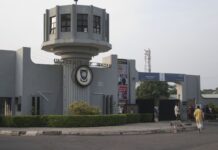Basking in the outcome of last Saturday’s supplementary elections which upped the membership of the minority caucus in the house of representatives to 182, the lawmakers-elect have begun consultations to occupy principal positions in the 10th house of representatives.
Recall that after the conclusion of the elections, the All Progressives Congress (APC) won a majority of 178 seats, Peoples Democratic Party (PDP), 114; Labour Party (LP), 35; New Nigeria Peoples Party (NNPP), 19; All Progressives Grand Alliance, (APGA), 5; Social Democratic Party (SDP), 2; African Democratic Congress (ADC), 2; and Young Progressives Party (YPP), 1.
Put together, the opposition parties have 182 seats, higher than APC’s 178 and enough to give them the simple majority needed to elect any member of their choice.
Going by the tradition of the house, the party which wins majority seats usually produces the speaker, deputy speaker, House Leader and Majority Whip.
Buoyed by its superior numerical strength in the house, the “emergent minority” which calls itself the “Greater Majority”, has resolved to go for the top positions.
The caucus made its position known after an emergency meeting held at the Transcorp Hilton Hotel, Abuja last night.
The caucus, made up of seven political parties, stated emphatically that it would contest the positions of speaker and deputy speaker with candidates selected from the south-south and northwest geo-political zones.
According to a statement issued by spokesman for the caucus, Mr. Victor Ogene, the 1999 constitution (as amended) gives every elected member the right to vie for any position, subject to the standing orders of the house.
Apart from the issue of ranking, Ogene said “every member is entitled to run for the office of speaker, regardless of political party affiliation,” stressing that the issue of zoning is an internal affair of any political party but ramming it down the “generality of the members” is an affront to the provisions of the constitution.
“The All Progressives Congress (APC), or indeed, any political party for that matter, reserves the right to regale itself with talks about micro-zoning leadership positions in the national assembly. But the overriding question remains, are such fanciful engagements binding of the generality of members-elect? The answer today, tomorrow – and until our current constitution is altered to reflect that desire – is a big No.
“Issues surrounding this all-important question is easily resolved, in the case of the house of representatives, by Section 50(1) (b), to wit:” There shall be a speaker and a deputy speaker of the house of representatives, who shall be elected by the members of that house from among themselves.
“While zoning is permitted, as an intra-party solution to the sharing of political offices, seeking to enforce such on the generality of members would be tantamount to affronting Section 50 of the Nigerian constitution.
“Besides, political parties must not always use the national assembly as guinea pigs for their zoning fancies. Why didn’t these governors summon the same courage, which they currently seek to flaunt, during the presidential primaries, by micro-zoning the presidency to a particular zone?
“If it was okay to say that the presidential ticket should go to the south, then I think they ought to follow through with that same template, and propose, for instance, that the speakership should go to the north,” Ogene stated.























































